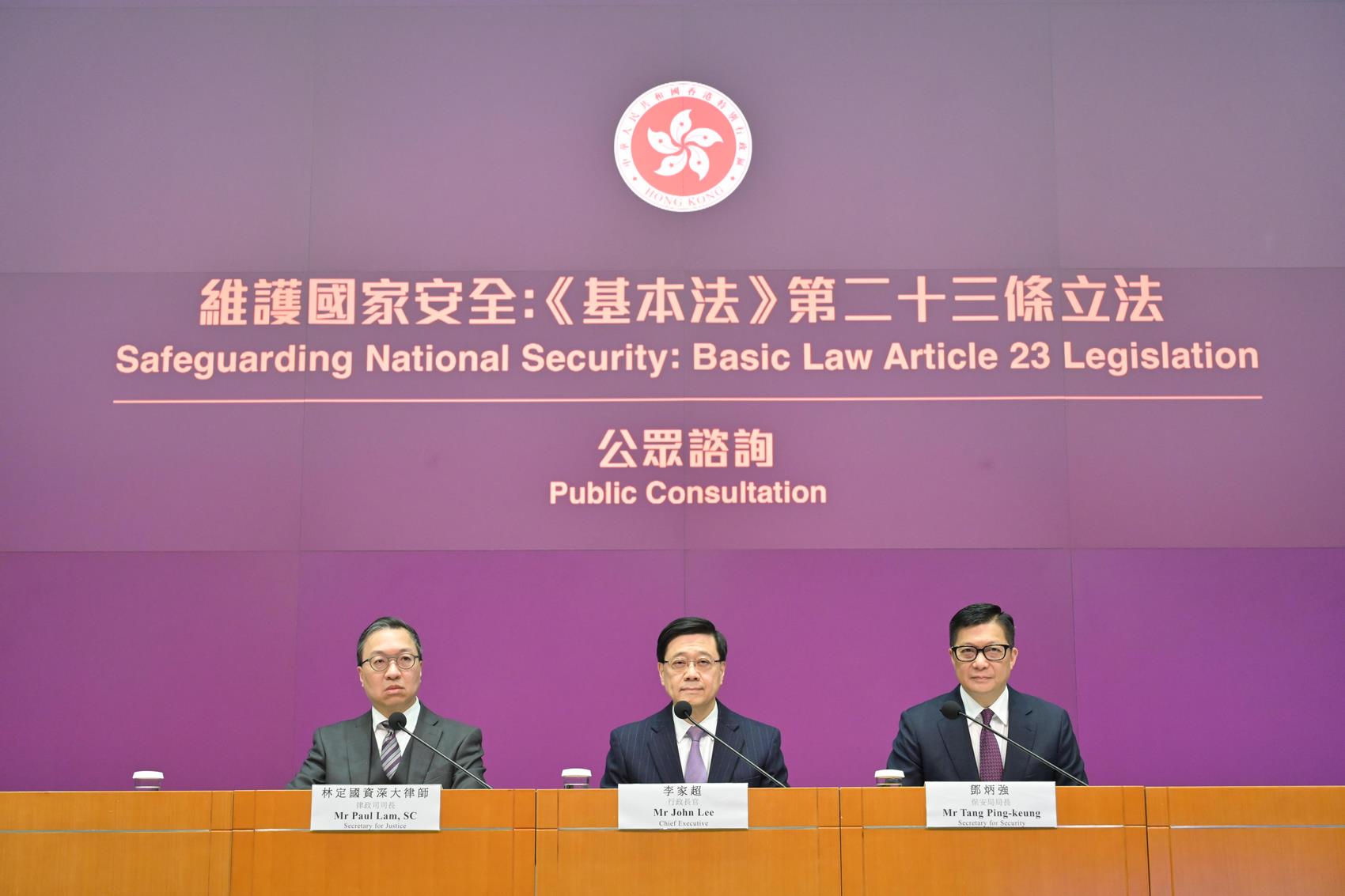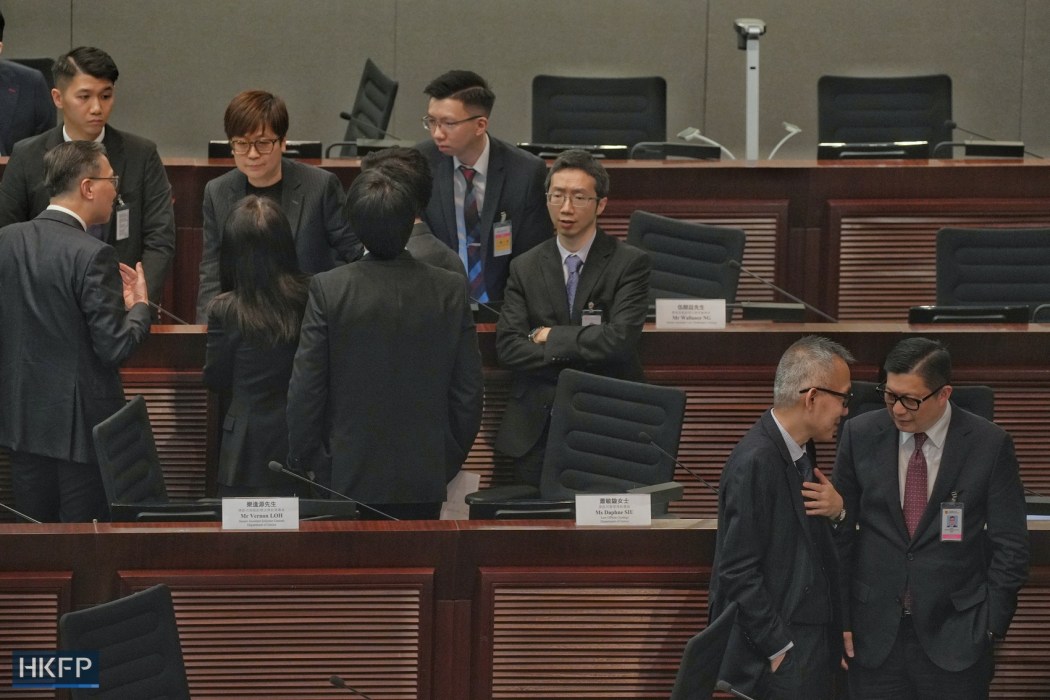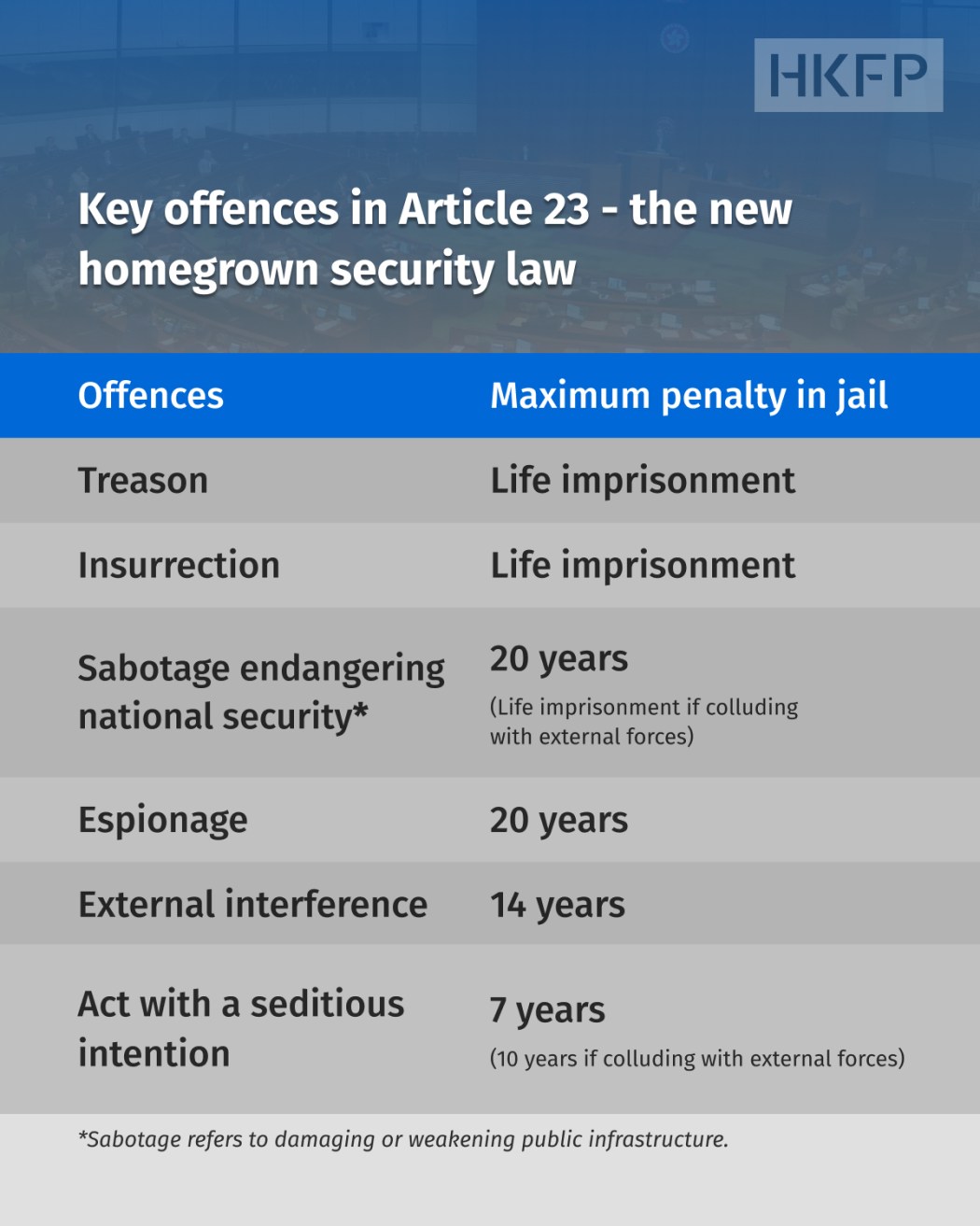A government taskforce behind the fast-tracked legislation of Hong Kong’s homegrown security law will receive an award for completing the “historical mission,” Chief Executive John Lee has said.

Hong Kong passed the Safeguarding National Security Ordinance, known locally as Article 23, in March, weeks after it was introduced to the public with a one-month consultation period.
During a regular press briefing on Tuesday, Lee said the special taskforce behind the legislation, which consisted of the Department of Justice, the Security Bureau, and the police, would be awarded for their “heroic work” and “deeds of valour.”
See also: Hong Kong passes new security law, raising max. penalty for treason, insurrection to life in prison
“[They] completed a historical mission after 26 years, eight months and 19 days of waiting,” Lee told reporters in Cantonese, referring to the period of time since Hong Kong’s mini-constitution – that mandated the passage of security legislation under Article 23 – came into effect. “The special taskforce deserves all the credit.”
Hong Kong officials earlier described the legislation for Article 23 as a “constitutional duty” that the city had failed to fulfil since it returned to Chinese rule in 1997.
A previous attempt to legislate Article 23 in 2003 prompted half-a-million residents to march in protest, with the proposal subsequently shelved.
During the one-month public consultation that began on January 30, the taskforce held 30 events to introduce the legislative proposal to different sectors, Lee said. Then, within nine days, the team analysed over 13,000 submissions and drafted a bill, he added.

In 25 meetings in the Legislative Council, the team answered over a thousand questions from lawmakers and eventually made 91 adjustments to the bill, Lee said.
The team also “rebutted smears from foreign interference” with strong arguments during the legislative process, Lee said.
“They are my heroes; they are the guardians of [Hong Kong],” he added.
Civil service award
The taskforce will be the second recipient of the Chief Executive’s Award for Exemplary Performance, set up in 2022 to recognise excellence in civil service. The award was first presented to a 59-strong search and rescue team deployed to quake-hit Turkey last year.

Separate to the 2020 Beijing-enacted security law, the homegrown Safeguarding National Security Ordinance targets treason, insurrection, sabotage, external interference, sedition, theft of state secrets and espionage. It allows for pre-charge detention of to up to 16 days, and suspects’ access to lawyers may be restricted, with penalties involving up to life in prison. Article 23 was shelved in 2003 amid mass protests, remaining taboo for years. But, on March 23, 2024, it was enacted having been fast-tracked and unanimously approved at the city’s opposition-free legislature.
The law has been criticised by rights NGOs, Western states and the UN as vague, broad and “regressive.” Authorities, however, cited perceived foreign interference and a constitutional duty to “close loopholes” after the 2019 protests and unrest.
Support HKFP | Policies & Ethics | Error/typo? | Contact Us | Newsletter | Transparency & Annual Report | Apps
Help safeguard press freedom & keep HKFP free for all readers by supporting our team




إرسال تعليق